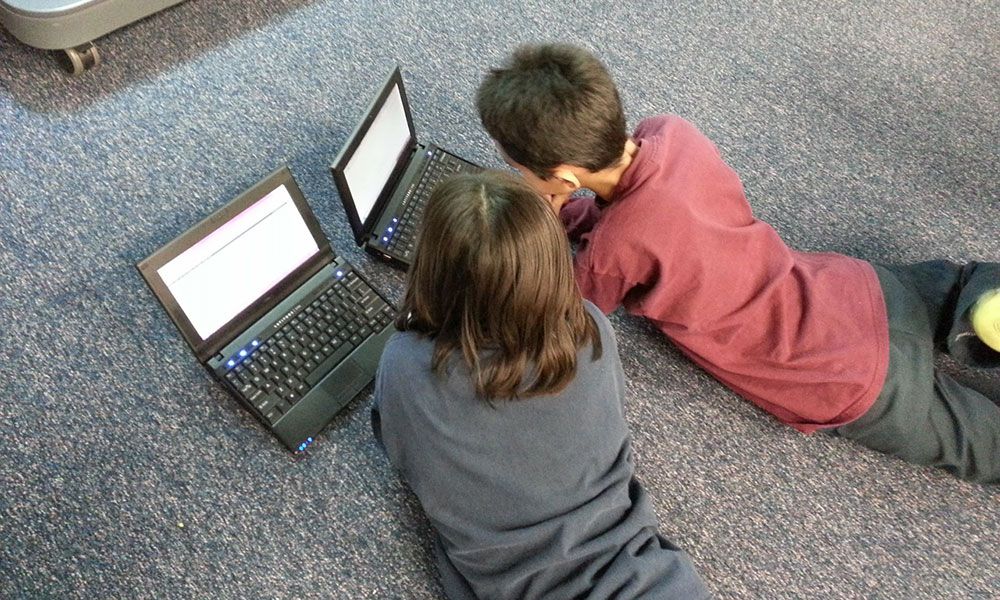In June of last year, the French newspaper 'Le Monde' published a news item announcing that Sweden was going to abandon its Digitalisation Plan, reversing the use of screens in classrooms and returning to textbooks. This decision was announced after the publication of the results of the PIRLS 2021 Report, which assesses the reading comprehension of 4th grade students and which, in the Scandinavian case, reflected a clear decline. However, this information was not entirely accurate: the real intention of Lotta Edholm, Minister of Education of this country, was not to abandon this plan, but to ask different experts to study and analyse the results so that, based on the conclusions drawn, they could apply the appropriate changes. Although it is not fully verified and is not really true, the news spread like wildfire through the media and social networks, and gave rise to a debate that is still ongoing both in the educational community and in the rest of society: should the use of electronic devices, such as tablets and laptops, be banned in the classroom or should we focus on regulating and educating in their use? Thus, two strands of opinion have been created: one that has been described as 'digital denialism' by some sectors, which seek to ban the use of screens in schools, and another in which there are those who support the use of technology, as long as it is accompanied by a pedagogical approach.
Digital denialism
Thus, in this controversy, one part is in favour of the de-digitalisation of schools and a return to a school like 'the one before', in which paper textbooks are the main teaching vehicle, while the use of any device with a screen is excluded from these environments. The writer and doctor in Education and Psychology Catherine L'Ecuyer is one of the education professionals who is very active in her social media profiles defending this approach. A firm supporter of traditional education, she states that “the Government should regulate the entry of mobile phones and devices into school premises, and in the Infant stage there should not be any technology for reasons of public health.” Similarly, regarding the use of technology in classrooms, she believes that the way to solve this issue is for families to have freedom when choosing a school. “If parents do not want tablets, there should be centres that offer this option. (…) If we tell them what they should do with their children, we put them in an impossible situation. We have created an environment in which families cannot educate, they are forced to go against everything,” he explains in an interview published in the newspaper 'La Vanguardia'.
Among the arguments put forward by those in favour of eliminating all types of technology from classrooms are, above all, those related to addiction or the impact that excessive use of screens can have on the psychosocial development of minors. They believe that their use from an early age leads to health problems because there is a connection between the use of social networks and depression or other mental health problems among adolescents. L'Ecuyer states in this regard that there are studies that show that digital multitasking takes its toll and that “in general, one learns better on paper than on a screen; writing on paper is better than on a keyboard.”
Teachers against the ban
In contrast to this digital denial stance, there is another group of families, teachers and society in general that has also expressed its opinion on this issue through social networks or by signing documents. A clear example is the 'Manifesto in favour of the use of ICT and the development of digital competence in the classroom', promoted by a group of more than 500 teachers and academics from all educational levels who have joined together to denounce the “reactionary movement against the use of ICT for educational purposes”.

Among the signatories of the manifesto are numerous members of the Collective of Teachers for Inclusion and Educational Improvement (DIME), made up of teachers who aim to defend the right to quality and inclusive education for all. “If educational centres aim to be up to date on a scientific and technological level and move in parallel with the progress of other institutions, according to the development and progress of society, they cannot remain anchored in an already obsolete past whose return is impossible to appeal against,” they say.
Always hand in hand with pedagogy
Experts in favour of ICTs in the classroom defend their position by arguing that it should always be done taking into account pedagogical criteria: “A pencil and paper or an iPad can be tremendously useful or harmful depending on how they are used,” explains Manuel Fernández Navas, a professor of Didactics at the University of Malaga (UMA), in an interview published in the magazine (No. 52, November-January 2024). With this, the university professor refers to the importance of determining how technology is used and for what purpose, not whether it is used too frequently. Precisely, that is the purpose of Educational Technology, a concept created in 1954 by Professor Burrhus Frederik Skinner, of Harvard University (Massachusetts, United States). In Spain, it is a subject that has been taught – currently, in the Degree in Pedagogy – since the 1970s and whose mission is for future teachers to learn to reflect, understand and propose actions that relate technology and education. In other words, they are capable of using technology in the classroom always from a pedagogical perspective and with a specific learning purpose. It is about answering the question why and how to use it? in school.
This is an excerpt from the En Portada report published in issue 54 of the printed magazine. If you want to read it in full and learn more about the debate on the use of technology in the classroom, you can subscribe in our online store. Do it with the code EDUCACION54 and you will get a 20% discount until June 6 in our online store!

